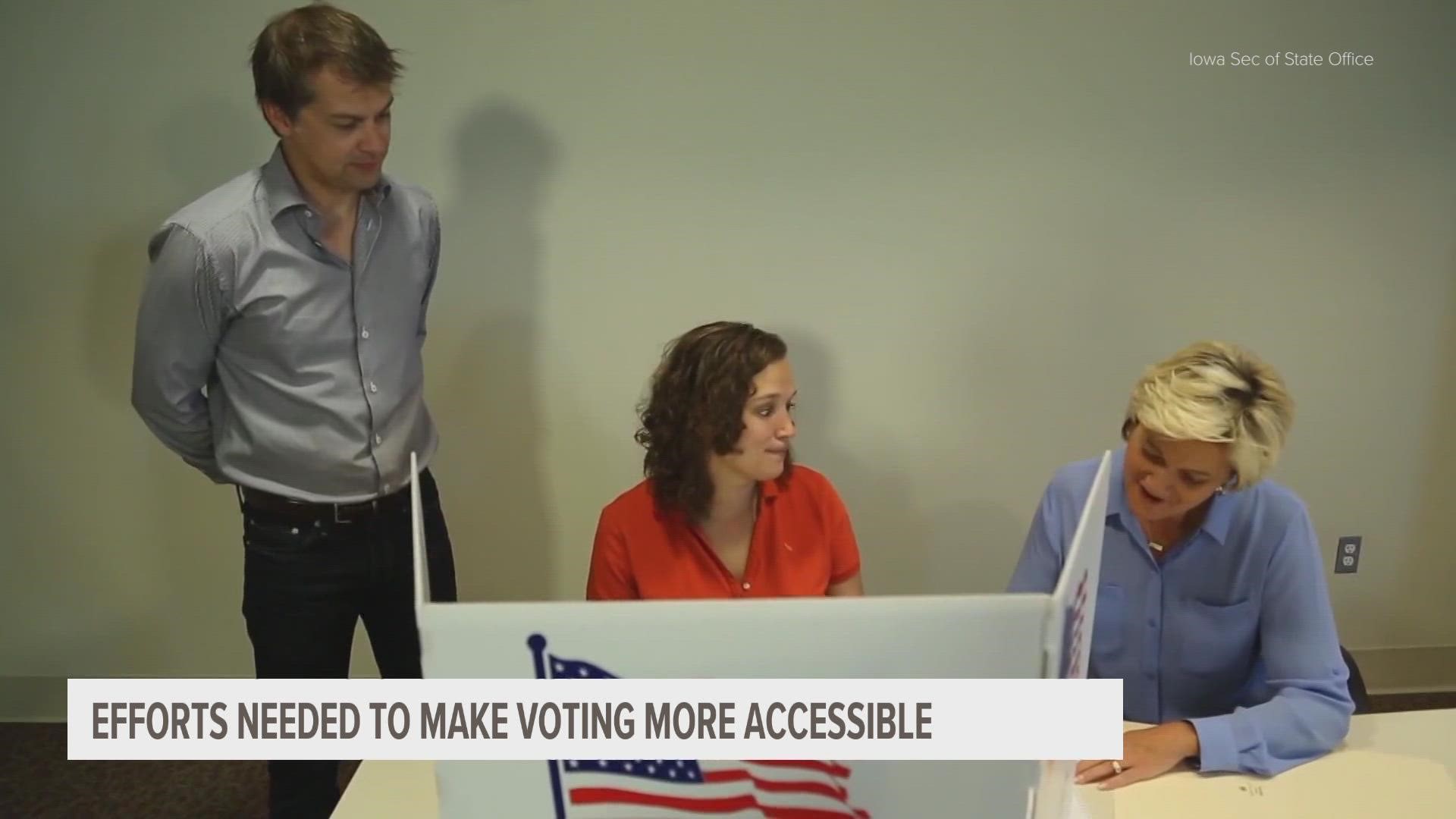DES MOINES, Iowa — People who are deaf and hard of hearing face unique challenges this general election, including accessibility and information.
A couple of the questions some hearing-impaired voters may have:
- Will I be able to cast my vote at the polls?
- How can I become informed about who's on the ballot?
Those who are deaf and people with hearing impairments make up the largest minority population in the United States.
"It's millions of people across the country. Somewhere around 20% of our nation has some form of disability, whether that is deafness or vision impairment, autism disorder, mental illness, physical disabilities," said Daniel Van Sant, director of disability policy at the Harkin Institute. "And if elections are not accessible to roughly 20% of the population and their families and friends and caregivers, you are missing a tremendous portion of our population that's not being heard."
Van Sant said voting accessibility for the deaf community is twofold, starting with information about candidates, plus making sure political ads and ballot initiatives are captioned.
"You want to make sure that any candidate event you're putting on, a debate, a speech, everything should have American sign language, as well as cart transcription, which is a live captioning transcribed by a human captioner," Van Sant said. "If they don't know where a candidate stands, they don't know who to vote for, and when they show up to a polling place, you also have to make sure that place is accessible."
Iowa is making progress: every voting location has a curbside option allowing people to vote without getting out of their car with people standing by to offer assistance.
That additional help, Van Sant said, should include an ASL interpreter. However, he knows that's not likely because of an interpreter shortage.
However, he recommends pre-recorded videos in American Sign Language with instructions displayed on tablets.
"Even just a PSA video about what the process would look like could prepare someone to feel confident walking in that day of what their experience will be," Van Sant said.
Prepared poll workers can help make voting a positive experience.
"Poll workers need to assume that at some point during Election Day, they will have voters with disabilities, who are deaf or blind or use a wheelchair, or have a visible disability," Van Sant added. "If somebody comes in and says, 'I'm deaf, and I need assistance, I have a disability and need assistance', if the poll worker responds smoothly, confidently, and says 'We have these videos, we have this placard, we have a note pad and pencil...' that alone can really go a long way in making people feel comfortable and confident."

